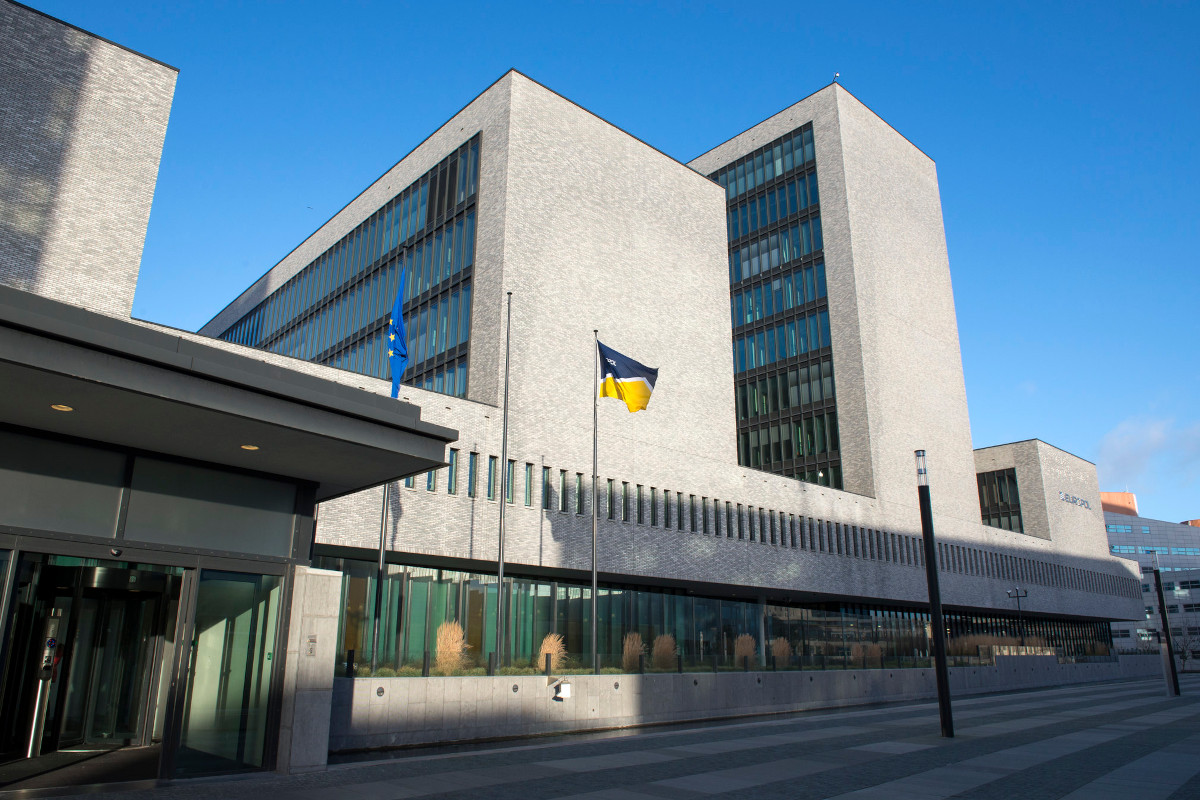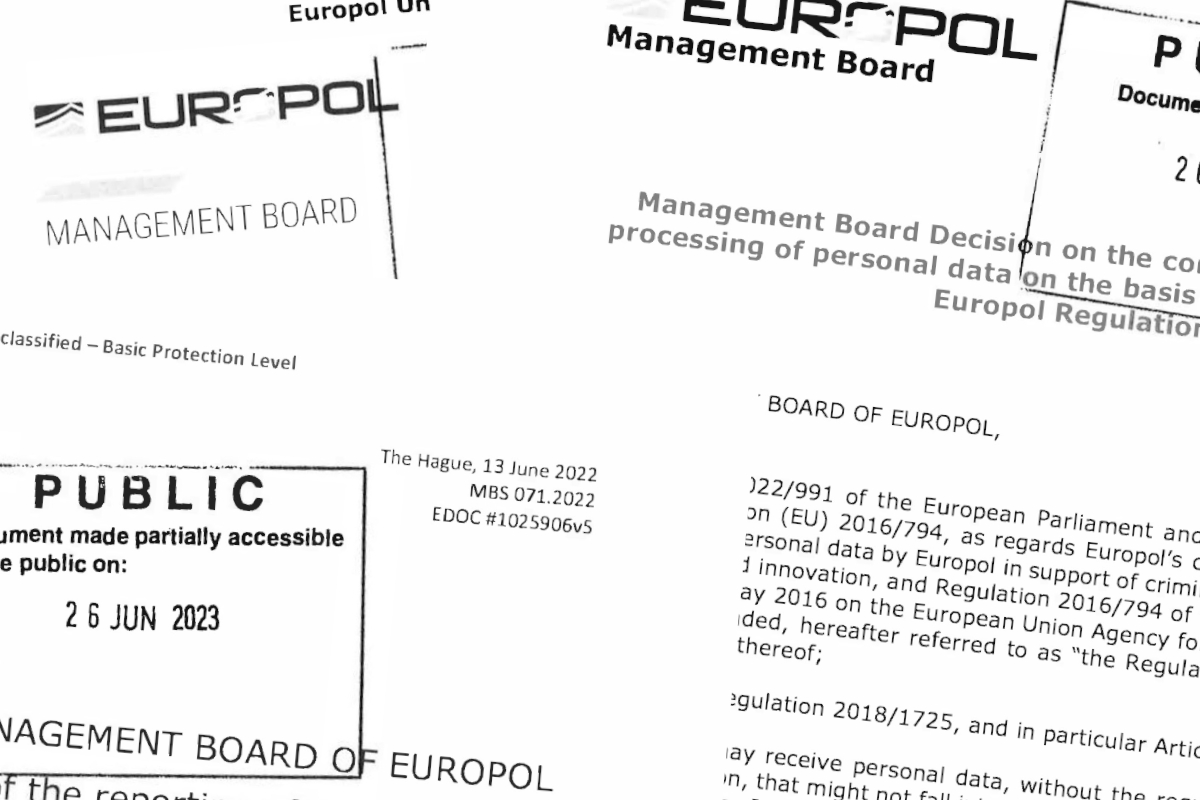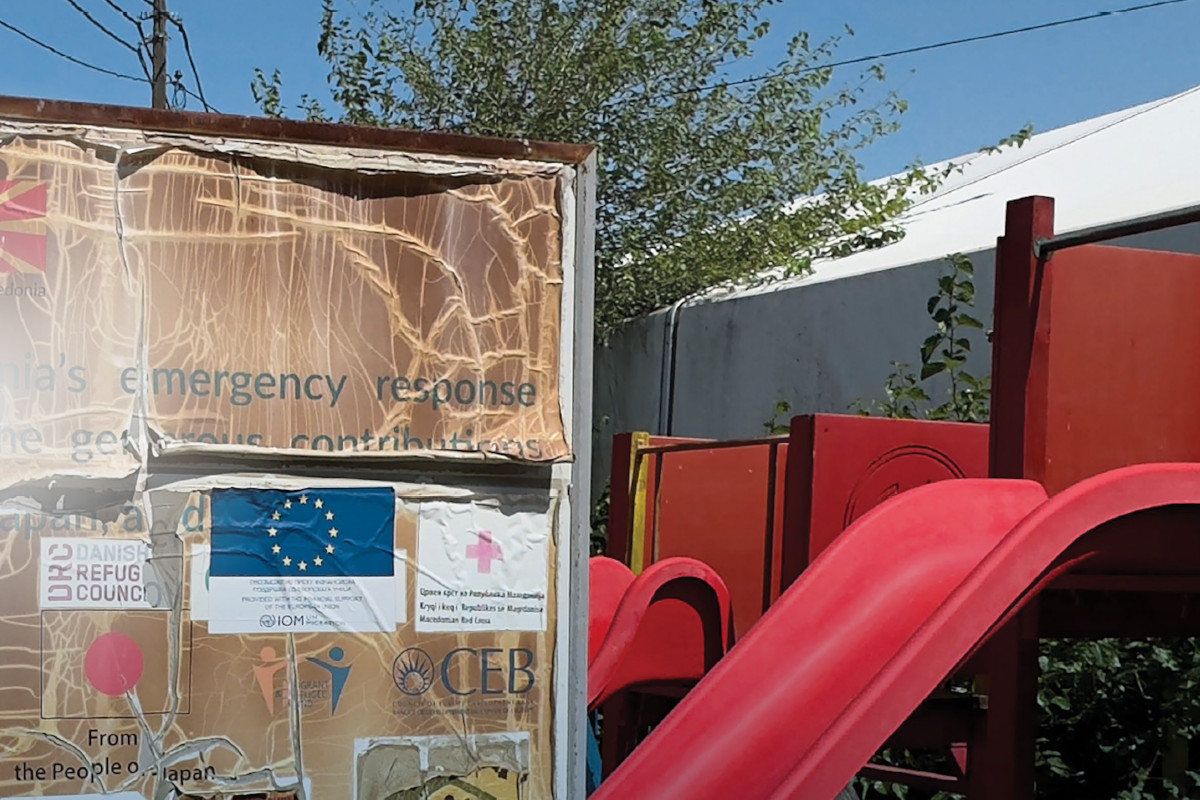EU police chiefs seek limits to “ambitious overhaul” of Europol
Topic
Country/Region
09 July 2025
Another upgrade to the powers of EU police agency Europol is in the works. The European Commission wants to see an “ambitious overhaul” so it can become “truly operational.” European police chiefs, however, are sceptical. A “strategic debate” amongst member state delegations is ongoing, but remains behind closed doors.
Support our work: become a Friend of Statewatch from as little as £1/€1 per month.

Image: Europol
“Strategic debate” on Europol
Member states should have a “strategic debate” on the “future of Europol,” according to a document (pdf) produced by the Polish Presidency of the EU Council, produced in March but made public this week.
That debate comes in the context of plans announced by the European Commission to propose an “ambitious overhaul” of the EU policing agency, as part of its ‘ProtectEU’ internal security strategy.
The Commission would like to see Europol become a “truly operational police agency.”
However, the Council has consistently opposed some of the Commission’s more ambitious plans for Europol.
The Presidency’s document notes that the Council’s mandate for the current proposal to upgrade Europol’s powers “did not support some of the elements of the Commission’s original proposal, such as enabling Europol to use non-coercive investigative measures.”
As Statewatch reported at the time, the Council effectively tore the Commission’s proposal to shreds.
Opposition from police chiefs
A statement produced by EU member state police chiefs also shows that opposition to the Commission’s “truly operational” plans is likely to come from national police forces themselves.
The police chiefs’ statement, produced in late April, says:
“…it is crucial to further develop Europol as the European central agency for information, analysis and operational support in criminal matters. However, we emphasize that Europol should remain a supportive coordination centre, rather than evolving into a command centre.”
It goes on to say that “sovereignty as well as investigative and operational powers reside with each Member State,” and that Europol “should obtain neither coercive nor autonomous investigative powers.”
Nevertheless, the police chiefs call for:
- “more information be shared with Europol. Technical and legal obstacles to information sharing and analysis must be overcome, especially in relation to the processing of large or uncategorised data sets”;
- “Europol's role as a hub for information sharing can also extend to private entities. Europol could serve as a vital gateway for obtaining information from private entities, such as online service providers, financial institutions, and cryptocurrency exchanges”;
- “The further development of the Europol Innovation Lab is essential for bolstering Europol's analytical capabilities, effectively processing large and complex datasets and promoting the sharing of best practices among us all”;
- “establishment of an AI Lab and specialized analysis centres”
- “a secure European police cloud solution for data exchange and analysis”.
Extending existing projects and powers
Many of these proposals would extend projects and powers examined in the recent Statewatch report Automating Authority.
The police chiefs also call for a broadened mandate for Europol to cover “emerging security threats, including those that combine conventional and unconventional means.”
However, it remains unclear if this parallels the Commission’s idea to give Europol powers on “hybrid threats,” such as sabotage and disinformation.
Our work is only possible with your support.
Become a Friend of Statewatch from as little as £1/€1 per month.
Further reading

Activist demands compensation from Europol for illegal surveillance
A Dutch political activist last week filed a legal complaint with EU police agency Europol, seeking compensation for the unlawful processing and handling of his personal data. The move is likely to lead to litigation at the European Court of Justice to determine Europol’s liability. This case could help clarify the rights of individuals seeking redress against Europol’s growing surveillance and data-gathering efforts.

No real safeguards for new Europol data powers, says data protection authority
A new proposal to enhance the powers of Europol and to strengthen its cooperation with Frontex in the name of fighting migrant smuggling falls short of respecting data protection and fundamental rights standards, according to the European Data Protection Supervisor (EDPS).

Key Europol documents only made public following access request
None of the decisions adopted by the policing agency's management board since the entry into force of the revamped Europol Regulation last summer were made public, in breach of Europol's own transparency commitments, until Statewatch filed an access to documents request.
Spotted an error? If you've spotted a problem with this page, just click once to let us know.

